Hideo Kojima As Gaming’s Auteur Deserves To Be Credited As Such
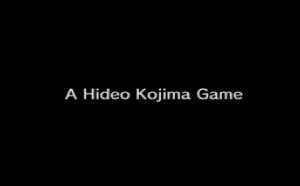
Editorial by Maxwell N, Posted on July 6, 2015
As the dust settles over the uproar caused by Kojima’s confirmed and impending departure from Konami, it’s easy to forget some of the concerns raised during the first week of the news.
When the events surrounding Kojima’s departure were first being reported (or rather confusedly whispered), the hashtag “movement” #AHideoKojimaGame garnered a lot of attention. For many fans, it was a unanimous gesture. A big “fuck you” to the corporate heads of Konami, and also a show of concern; what changes could Konami make to The Phantom Pain before release? Maybe, more importantly, a concern for the state of the future of the Metal Gear franchise.
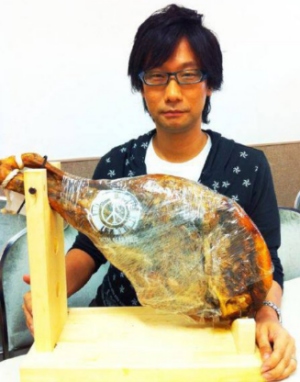 Kojima posing with small-scale model of an unused Metal Gear prototype from Peace Walker.
Kojima posing with small-scale model of an unused Metal Gear prototype from Peace Walker.However, #AHideoKojimaGame was first and foremost born out of the outrage over Konami’s perceived, though blatant, disrespect toward Kojima, for removing the infamous phrase “A Hideo Kojima Game” from promotional material. Not only for The Phantom Pain but also for the Legacy Collection for the PlayStation 3. The irony of this move was not lost on many fans.
When I say infamous, I do mean it. It might be a bit odd to a passerby. “What’s the big deal?” In fact, some might say, “Good. Why should be one dude be credited for the creation of an entire video game?”
Some have even argued that Kojima’s departure is a good thing, and that it would open up the franchise to fresher, new blood. Hell, that might be true in theory, but that should not discredit the fact that yes, one man can be credited for a game, the same way a director can be credited for an entire movie or an architect for an entire building.
KOJIMA’S ASPIRATIONS
Hideo Kojima grew up watching movies and looking up to filmmakers that he aspired to be like. It’s no question that sci-fi movies like Invasion of the Body Snatchers, Escape from New York, Mad Max, and Blade Runner left a huge impact on him. As of of 2014, he lists his top two favorite movies as 2001: A Space Odyssey and Taxi Driver. He has also written about his strong liking for Alfred Hitchcock’s body of work.
 It has been long rumored that MGS2 was originally supposed to end with a 20-minute long pie-fight scene.
It has been long rumored that MGS2 was originally supposed to end with a 20-minute long pie-fight scene.Why is this important? Most, if not all, of the movies mentioned above, are known for their directors more than anybody else who worked on them.
When Kojima and most movie audiences see 2001: A Space Oddysey or Dr. Strangelove or: How I Learned to Stop Worrying and Love the Bomb, they’re usually thinking more about Kubrick’s amazing eye for visuals, and the strange, eerie quality of his work. Kubrick didn’t physically build the sets, manage the movie’s budget, do the catering, act, or compose the music all by himself.
But, he performed as a team leader, directing his team in his vision, taking responsibility for the end product. As such, they are “Stanley Kubrick movies”. Hell, most of his movies are based on books yet still heavily associated with him. I would wager that the majority of the general audience doesn’t know or care about the books’ existence. I have talked to people who aren’t even aware of 2001‘s sequel, 2010 (though your mileage for that being a good or bad thing might vary).
Kojima wants to be the Kubrick of the video game industry. To have his name plastered all over his work, and for people to recognize his work. But also to take responsibility for his vision. After all, if a game sucks, you’re likely to just say “this game sucks”. But if “a Hideo Kojima game” sucks, then you know exactly who to blame.
This is important to him, and it should be important to us too.
Metal Gear is his creation; without him, there would be no Metal Gear. Of course, he works with a talented team, or rather people who work beside and/or under him, but it all started with Kojima working by himself on some silly, convoluted action game for the MSX, where you actually actively avoid action. In an era where “indie gaming” wasn’t even a conceivable concept, Kojima’s Metal Gear was as indie as you could have been with a singular idea. The series that followed reflects his personal creative vision.
THE MEANING OF “A HIDEO KOJIMA GAME”
You might say, “But The Legend of Zelda didn’t say ‘a Shigero Miyamoto game’ on the cover, SimCity never said ‘a Will Wright game’, Dark Souls doesn’t say ‘a Hidetaka Miyazaki game’. Why were these games not advertised to the masses under the name of the creator and/or director?”
There’s a simple answer to that: the video game industry does not usually work like the movie industry.
In fact, in many ways it works like the old movie industry, or “old Hollywood,” before it was even an industry. In those days, folks came in to see these weird moving pictures; nothing more, nothing less. Sometimes they dove out of the way of a train coming toward the screen. Apparently people were dumb.
Nobody cared about the director—the title of “film director” didn’t even exist. Filmmakers were simply experimenting with different techniques, making a product. Entertaining people and themselves on some universal level. Their movies were kind of like toys. It wasn’t until much later that the role of a director was acknowledged and directors started making the movies that they wanted to make…give or take.
Before games were considered art or entertainment on the same level as movies, music, paintings etc. they were mostly seen as mass-produced toys not unlike Scrabble, Hungry Hungry Hippos or Connect 4.
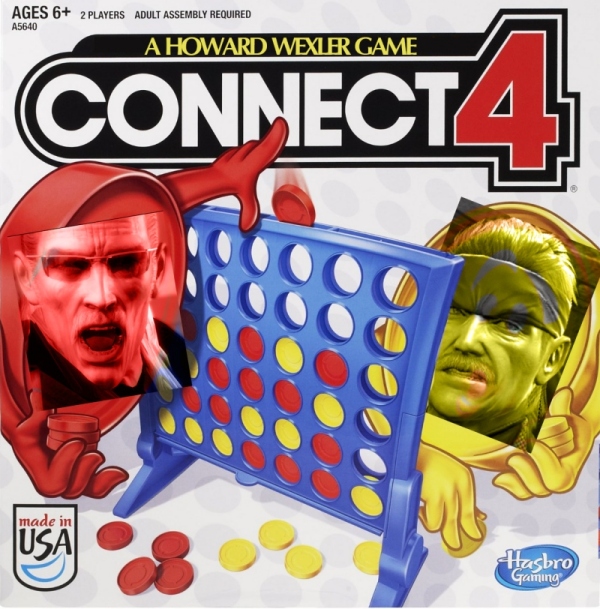
Connect 4: Colored Discs of the Patriots
The art behind the creation of a game was something only the developers thought about and even most developers didn’t see themselves as artists or their work as art. They were simply making, or trying to make in most cases, a fun piece of entertainment. For a huge chunk of them it was just a job. Work on some project, meet deadlines, and move on to better jobs.
The video gaming industry, at large, hardly left this phase. It struggled to find the balance between marketing toys and art, and settled on a line between the two. This is not necessarily a bad thing. It is just how it currently works.
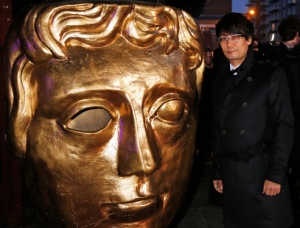
Would this same environment have fostered the creation of the first Pac-Man, Final Fantasy, Silent Hill, Super Mario Bros, Mega Man, and so on? Sure, there are still good games that come out, some years more exceedingly so, but there’s a reason that purely unique or genre-defining games are few or far in-between and usually come from independent-oriented developers or independently-driven studios within a bigger company.
So, the reason you don’t see singular artists being credited for video games made under major companies because such a concept often does not exist. You own the product, you sell the product. Pandering to the whim of some “artists” makes little sense when you’re trying to blindly push a toy.
“A HIDEO KOJIMA GAME” is an important statement as it bridges the gap between video games and the rest of the respected art world. It’s a unique individualistic breakthrough in an otherwise collectivist, and for a lack of a better word, corporate industry. It recognizes the identity of an individual’s impression on the world, his life and work, what he stands for, likes, and creates and whatnot.
Video gaming often lacks this identity for the same reason it lacks respect outside of its own self-imploding culture.
NO PLACE FOR HIDEO, AND NO PLACE FOR YOU
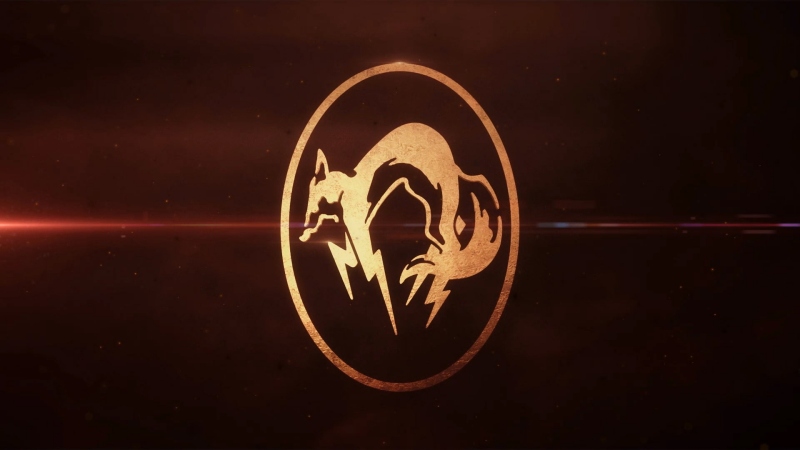
Nothing here.
Video games are not like movies, however.
It’s easier to say that Kojima’s work in the industry resembles more like the work of Andy Warhol and his factory or El Anatsui and his warehouse or Frank Lloyd Wright and his buildings.
These are important artists with a direction, and whether I like their work or not, it does not matter. There have been games under the “A Hideo Kojima Game” umbrella that I do not care for, but at that moment in his life, Kojima was involved in the making of those games for one reason or another. It is part of his collective work. It does not negate the fact that Metal Gear is a Hideo Kojima game series, of his creation that would not exist if it were not for him meticulously looking over the details.
An artist’s work represents a lot of things about them, and when an artist works with other people, it brings more out of everyone. You can make the statement that Kojima used other people as tools to bring his world to life, and that’s how we all live our individual lives anyway.